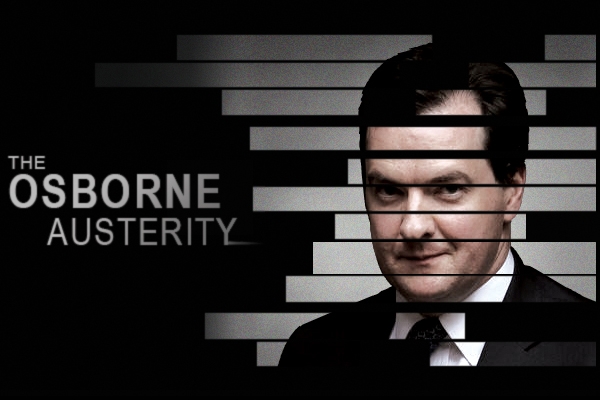The Daily Telegraph is more supportive of the Conservative Party than any British newspaper, which is why its leader today – urging George Osborne to change course – is important. “The coalition’s economic policy is not working” it says, and goes on to urge a rupture with the failing policy. Its central recommendation is that corporation tax drops below Irish levels so Britain offers the lowest company tax in the European Union. Osborne could announce this on his 20 March budget. And he could spend 21 March listening to the sucking sound as companies started relocating to Britain.
“Overnight, this would make the UK the most attractive location in the EU in which to invest and do business, and it would be consistent with the steps the Coalition has already taken to make the country one of the best places in the world to start a new business. Such a significant reduction could be accompanied by the removal of exemptions, subsidies and special deals that businesses currently enjoy. Extra growth would compensate the Treasury for the up-front tax hit.
It also proposes the abolition – yes, abolition – of capital gains tax.
The Chancellor should also consider abolishing capital gains tax (CGT), currently levied at 28 per cent, which raises less than £5 billion a year but which requires a host of rules and regulations to prevent avoidance. This would infuriate the Left, but CGT reduces the incentive to invest at a time when it is badly needed. Entrepreneurship and risk-taking should be encouraged, not throttled.
This can be financed by the slimming down of government. The Telegraph leader cites a figure that you’d never read in the Guardian (or the Times) because it belies the idea of vicious (or courageous) cuts. In Osborne’s first 3 years as Chancellor, core government spending will fall by just 3 per cent. Like a child peeling a plaster off slowly, to minimise the pain, this just protracts the whole process. In 2015, after seven years banging on about the deficit, Osborne will have to admit that the deficit is not only still there but that it is the worst deficit in the Western world. Voters who had put the Tories in to fix this problem will be deeply unimpressed.
How to make faster progress? The government is interested in Canada right now, as we saw when Osborne brilliantly poached Mark Carney, the next Bank of England governor. But the lesson from Canada’s remarkable recovery is that there should be no sacred cows: departments should be cut equally. Osborne seems to have acquired a farmyard full of sacred cows. Foreign aid is ‘protected’, the NHS is ‘protected’ and so on Behind this lurks a dangerous intellectual error: the idea that money means progress. This is the very idea that was tested to destruction by the last Labour government.
Doubling the NHS budget did not prevent the NHS Mid Staffs disaster: ‘Protecting’ the NHS does not mean making sure it’s more expensive than ever. The health service can be expected to do more, with less. It’s also worth noting that Telegraph is reluctantly proposing cuts that would alarm many of its readers. It suggests “removing benefits for better-off pensioners, such as free bus passes and the winter fuel allowance.”
I can imagine Osborne reading this thinking ‘ah well, easy for you to say, I have to win an election’. But this is the point: right now, his caution is leading him to defeat as well as economic failure. The standard of living is being squeezed and voters notice. Osborne asked the 2011 Tory Conference to keep their “eyes on the prize – a British economy freed from its debts”. In fact, as the Telegraph says, Osborne’s plan is for the national debt to rise by an almighty 58 per cent. Soon, the Telegraph says,
…our social commitments, not least to pensions, will be unaffordable. It is simply handing over the responsibility to future taxpayers, which is not only unreasonable, but immoral. It is also profoundly un-Conservative.
Politicians tend to see newspaper support as tribal: that, if the Daily Telegraph is Conservative, it ought to support a Tory Chancellor. But the Telegraph, like The Spectator, vehemently attacked Gordon Brown’s plans for 2010-15 because of the debt he proposed. Brown’s critics, myself included, can hardly applaud Osborne for borrowing just as much. As CitiGroup has pointed out, Osborne’s resolve has weakened with each budget and autumn statement. The majority of fiscal consolidation will now be carried out by whoever wins the 2015 election. This is not fiscal responsibility, but its negation. The City has noticed and it’s now likely that Britain will lose its AAA credit rating. A Chancellor, no matter how charming, can’t expect Conservatives to keep waving the pom poms while debt skyrockets and the recovery evaporates.
The Telegraph leader ends on a simple point: that next month’s Budget is Osborne’s last chance to make changes that will make difference in 2015. If he doesn’t do something radical, and change the autopilot from the current cliff-bound course, then he will be consigning himself, his party and his country to a pretty unattractive fate. The newspaper is not attacking Osborne, or calling for his departure. It is simply urging him to change course.
David Cameron has just demonstrated in Europe that boldness can work. The Telegraph’s leader shows there are plenty radical options on the table. Yes, taking them would be a gamble. But sticking to the existing policy, now demonstrably failing, would be the biggest gamble of all.







Comments